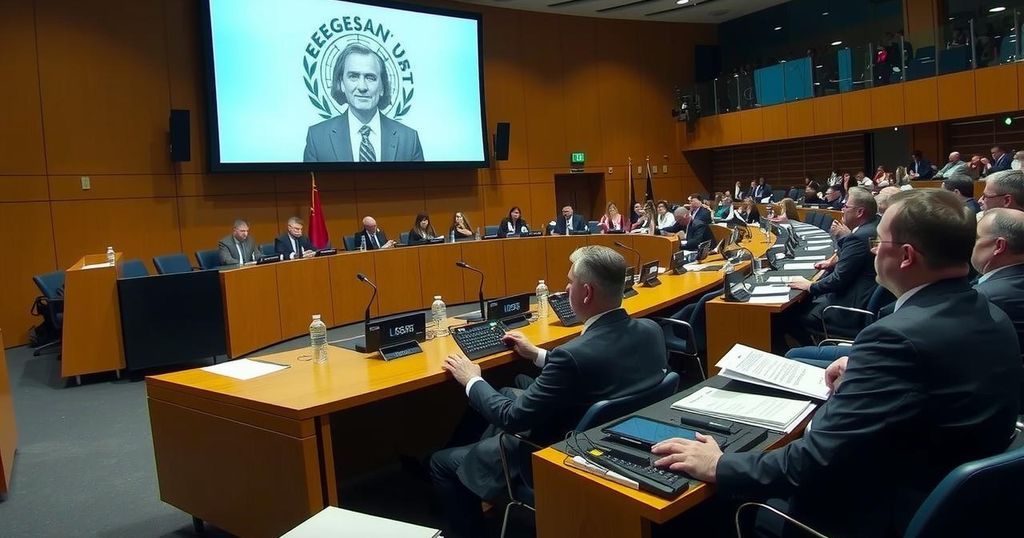COP29: Progress Lacking, Resilience Growing in Climate Talks

COP29 concluded with minimal progress, setting a new climate finance goal of US$300 billion by 2035. The agreement contained flaws and omitted key principles, disappointing many advocates. Nevertheless, civil society demonstrated resilience, advocating for urgent climate action ahead of COP30 in Brazil, where further commitments are needed to ensure climate justice.
The 29th United Nations Conference on Climate Change (COP29) concluded after an extensive two-week negotiation period in Baku, Azerbaijan, yet ultimately failed to achieve significant climate finance commitments. Originally intended to establish robust financial commitments to combat climate change, the summit ended with merely a US$300 billion annual public climate finance goal set for 2035. This underwhelming agreement featured several loopholes regarding carbon markets and limited actionable measures, though it did maintain the commitment to transition away from fossil fuels from COP28. Notably, the “Make Polluters Pay” principle was omitted from the final agreement at the last moment, exacerbating disappointment among civil society and vulnerable nations already facing severe climate impacts.
Despite the disheartening outcomes, notable hope emerged from the resilience and determination displayed by civil society in Baku. Protesters, navigating stringent regulations against peaceful demonstrations, creatively voiced their demands, signaling their commitment to persistent advocacy for climate action. As the world prepares for COP30 in Belem, Brazil, there exists an urgent need for significant financing not only for loss and damage but also for adaptation and mitigation strategies, ultimately striving for climate justice to address the fundamental damages inflicted by the climate crisis.
COP29 aimed to be a pivotal meeting for climate finance, designated as a ‘finance COP’ where countries were expected to propose various financial strategies to enhance global action against climate change. The assembly was seen as a critical moment to build on earlier commitments from COP28 and Biodiversity COP16, yet the outcomes were largely viewed as insufficient amid the escalating urgency for climate action. The omission of crucial elements like the ‘Make Polluters Pay’ principle highlighted the ongoing challenges in achieving comprehensive climate agreements in a politically fraught environment.
In summary, COP29 ended with inadequate financial commitments and disappointing loopholes, signaling more work is necessary to address the climate crisis. However, the determination shown by civil society provides a glimmer of hope for future negotiations. As the global community looks forward to COP30 in Brazil, there is an urgent need for concrete financial support focused on climate justice, striving to end oil and gas production and ensure accountability for past damages.
Original Source: www.greenpeace.org






